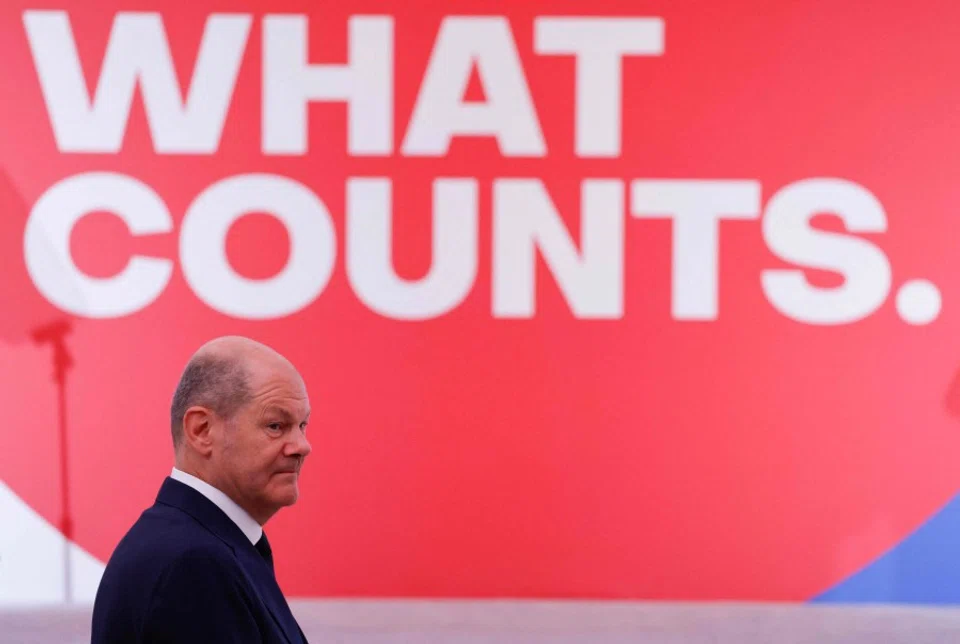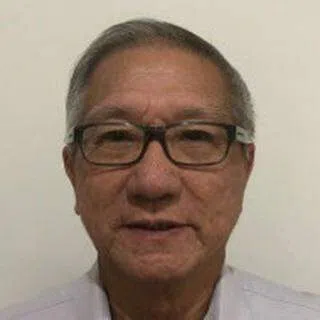Germany and Europe a pawn of the US?
Analysing German Chancellor Olaf Scholz's recent visit to China, former journalist Goh Choon Kang offers the view that Germany - along with much of Europe - has been "weaponised" by the US for its own aims, whether in terms of China policy or the war in Ukraine. This is a clear lesson for other countries, those in Southeast Asia included.

Germany is a global economic power, and an economic driver in Europe. But Germany is in a helpless plight, both externally and internally. On 4 November, German Chancellor Olaf Scholz visited China for one short day, and probably did not even get a good look at Beijing. No wonder some said it was a "day trip".
Scholz is the first leader of a European power to visit China since the pandemic, and the first European leader to visit since Chinese President Xi Jinping secured a third term following the 20th Party Congress of the Chinese Communist Party (CCP). It should be an important visit, but why the rush? Obviously not because he did not want to stay a few more days, but due to circumstances - there was significant objection in Germany, and pressure from other European countries that questioned the utility of the trip. Scholz had no choice but to shorten his schedule.
Different circumstances
This is very different from Germany under Angela Merkel, who maintained good relations with Russia and got ample and relatively cheap energy for Germany's needs. To get nearby resources, she angered the US by approving the Nordstream 2 pipes, to directly bring in natural gas from Russia. On the other hand, Germany's major manufacturers (especially a few car companies) entered the Chinese market and thrived. In a word, Germany had the best of both worlds.
Now, even the chancellor's visit to China also has to be explained at length internally and externally.

But things are different now. Those halcyon days finally ended with the war in Europe. Nordstream 2 was completed at the end of last year at a cost of US$11 billion, but became a white elephant overnight. The companies involved are bleeding, and Germany's dream of dropping nuclear energy and being totally dependent on clean energy looks over, or at least it will not happen as scheduled.
At the same time, the European Union (EU) has shifted to going along with the US since 2019, adjusting its China policy to define China as a "systemic rival", and Germany has landed itself in a dilemma. Merkel then stepped down, and Germany was caught in the middle diplomatically.
Now, even the chancellor's visit to China also has to be explained at length internally and externally. French President Emmanuel Macron advised Scholz not to visit China alone, and to travel with him instead, but Scholz declined, thereby declaring Germany's independence and autonomy. He also said the German and European economies cannot decouple from China, which shows he still has some political courage.
Haunted by history
But why not be more firm? Answer: The damage caused by Nazism, and US control.
After losing the Second World War, Nazi Germany could only submit to the winning side. This is the historical bane of Nazism, same as the legacy of militarism in Japan today. The US seized the opportunity to exert its influence and take economic control over Europe through the Marshall Plan, while taking Europe into its bosom through NATO.
For a period, only the hard-nosed French President Charles de Gaulle dared to say no. Now, Macron also wants to say no and build European autonomy. Unfortunately, his hands are tied - he cannot get domestic politics in order, much less exert diplomatic influence.
NATO became like the circlet around the Monkey King Sun Wukong's head - once the US recited the chant, the circlet would tighten and everyone's head would hurt fit to split, and they would fall in line.

So, post-war Germany, like Japan, came under US control, and both could not be considered "normal" countries in the ordinary sense. In their helplessness, they could only work on their economy, and both rose to become economic powers. But they were dependent on the US for security and defence, and could not be diplomatically independent. NATO became like the circlet around the Monkey King Sun Wukong's head - once the US recited the chant, the circlet would tighten and everyone's head would hurt fit to split, and they would fall in line.
Weaponised
As a large economic entity, the EU should have the might to play an influential role on the international stage. Unfortunately, this economic giant is a political and military dwarf - as long as this "spell" is not lifted, it cannot escape from the US's clutches. After Russia invaded Ukraine, this spell became stronger. Ukraine is being further "weaponised", and even Switzerland and Finland, which have always stayed neutral, applied to join NATO, as if in a trance.
After Europe fell into the US's "trap", it became a pawn in the geopolitical game. Put in the lingo of today, the European countries have been weaponised. In the great NATO chessboard designed by the US, all NATO members are the US's weapon. Nicely put, it is a "collective defence", but the countries have actually lost their autonomy. In the past, NATO was used to deal with the Soviet Union. Now it is being used against Russia and China. In Asia, Japan, South Korea and Taiwan have also been weaponised in service of the US's Asia strategy.
Once a country is weaponised, it is difficult to unwind the clock. Germany is in this plight now.

Once a country is weaponised, it is difficult to unwind the clock. Germany is in this plight now. When Russia invaded Ukraine, the US mobilised its Europe weapon - Germany not only had to send weapons to Ukraine like its "big brother" did, but also had to increase its defence spending to buy the latest fighter jets from the US. It also had to work with the EU to reduce its dependence on Russian energy. Statistics show that German households would have to pay three times more than what they were paying last year for gas this winter.
Isolated in Europe?
Fortunately, the German economy has seen stable growth for many years and accumulated significant reserves. Thus, Germany's parliament approved the government's 200 billion euro (US$195 billion) rescue package on 21 October, which aims to help citizens and businesses cope with soaring energy prices until 2024. Prior to this, the government already rolled out a 95 billion euros supplementary budget. Among EU member states, only Germany has such huge financial resources. But poorer member states are also green-eyed because of this and have attacked Germany for acting on its own and not being a reliable ally. Germany appears to be isolated now.
The chancellor's visit to China despite strong objections has angered detractors who say that Germany has not learnt from the lessons of energy dependence on Russia, and that maintaining close economic ties with China would lead to the same bad end.
According to Xinhua, Xi urged China and Germany, two powers of influence, to "work together in times of change and instability and contribute more to world peace and development" during his meeting with Scholz. He said that China was willing to "work with Germany for a future-oriented all-round strategic partnership and for new progress in China-Germany and China-Europe relations".
One doubts whether the current Germany can advance China-Germany and China-Europe relations. Remaining a window to Europe would already be an achievement. Scholz got something in return as well - Beijing agreed to approve German vaccines for foreign residents in the country, and it declared that China was against the use of nuclear weapons in Ukraine.
Deepening economic and trade relations with China actually aligns with German-China and China-Europe interests, but are at odds with rising anti-China sentiment in Europe.

Scholz's bold decision to visit China despite the din of opposition shows Germany's huge economic interests in China. His clear stance against decoupling is also motivated by Germany's national interests. Deepening economic and trade relations with China actually aligns with German-China and China-Europe interests, but are at odds with rising anti-China sentiment in Europe. Hence, even if Scholz wishes to continue with Merkel's legacy of pragmatism, he may not be able to do so.
This is the helplessness of an economic powerhouse, but also the inevitable fate of a weaponised country. This lesson should be taken to heart by Southeast Asian countries, especially the ASEAN member states.
Related: China's diplomacy in full swing after 20th Party Congress | Germany between the US and China | Securing its place in the world economic order: The EU can't afford to wait for the US | Will Germany's new government be tougher on China? | China and the West continue sparring during party congress



![[Big read] When the Arctic opens, what happens to Singapore?](https://cassette.sphdigital.com.sg/image/thinkchina/da65edebca34645c711c55e83e9877109b3c53847ebb1305573974651df1d13a)

![[Video] George Yeo: America’s deep pain — and why China won’t colonise](https://cassette.sphdigital.com.sg/image/thinkchina/15083e45d96c12390bdea6af2daf19fd9fcd875aa44a0f92796f34e3dad561cc)